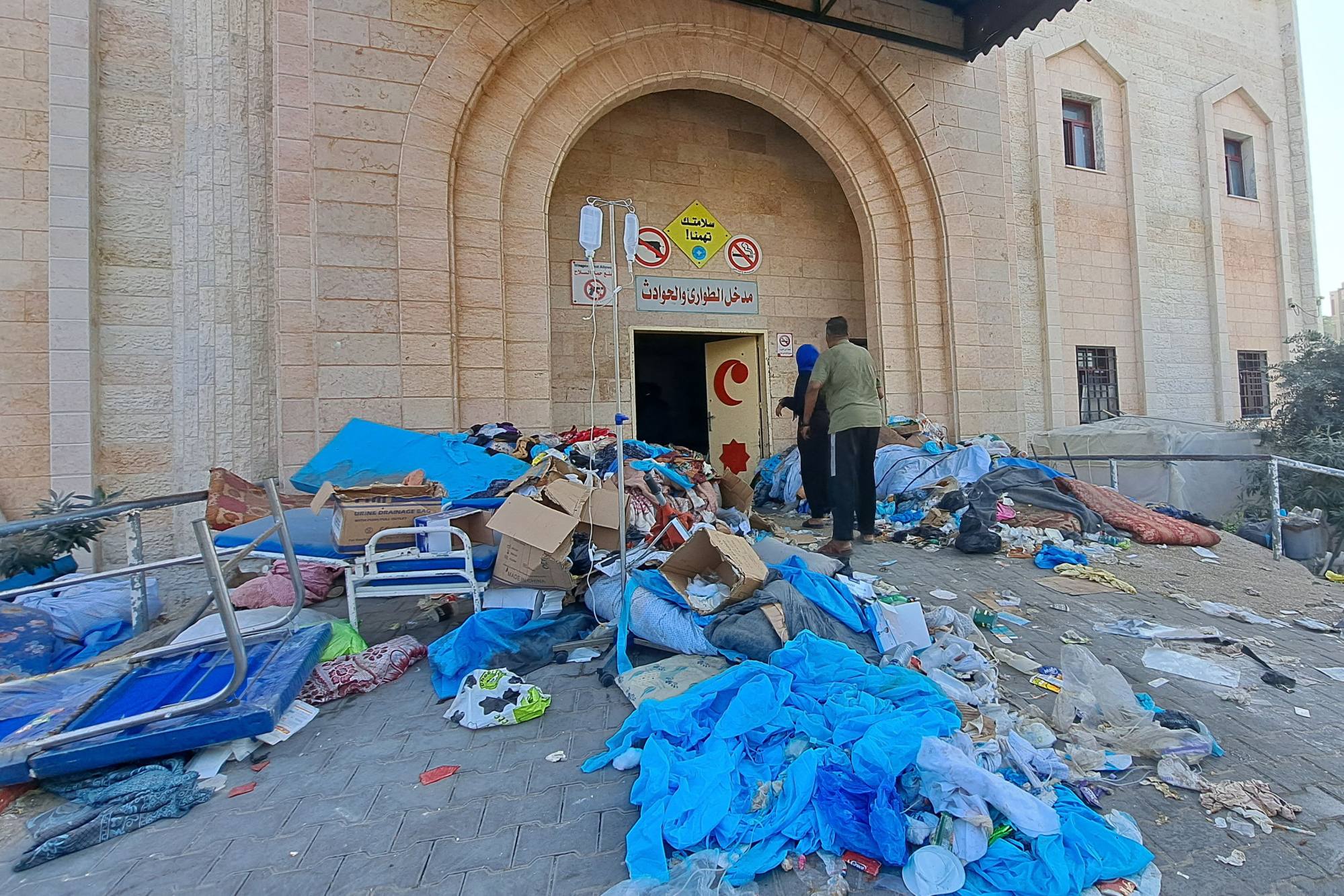Indonesians in Gaza stock up on food, supplies amid devastation of war as Israel-Hamas fighting resumes
Fikri said all volunteers and health workers were evacuated from the Indonesian Hospital on November 22, when “there were only six doctors left and not many injured patients remained”.
How an Indonesian hospital is struggling to function amid the Israel-Gaza war
How an Indonesian hospital is struggling to function amid the Israel-Gaza war
Gaza authorities on Monday said more than 15,000 Palestinians, including 6,150 children and 4,000 women, had been killed by Israeli attacks since the outbreak of the conflict on October 7.
“There was absolutely no life at all. Northern Gaza has been bombarded and destroyed,” Fikri said on Monday.
“There is no water, no food, no vegetables … The prices there are very expensive. One onion there is priced at 20 shekel (US$5.40), whereas in the south, 1kg of onions is priced at 3 or 4 shekel,” he added. “In the north … goods are very rare because residents’ plantations are also attacked by Israeli troops.”
According to Fikri, “more than 90 per cent” of residents in northern Gaza had been evacuated to the south, not knowing when they might be able to return to survey their destroyed homes and bury their loved ones.
“The Israelis prohibited the residents who had fled to the south to return to northern Gaza. Several residents who returned to the north were shot at by Israeli troops,” Fikri said.
Refuge in the south
But life in southern Gaza isn’t much better. Fikri said there was limited clean water at the school he was taking refuge in, “so we often went back and forth to the mosque or the bathroom near the European Hospital”.
In addition to high food prices, the school did not have a stove so people could not cook, he added.
While the truce between Israel and Hamas lasted, Fikri said residents had been hopeful that the ceasefire would become permanent. But they were still stocking up on necessities before the war resumed.
He said Gazans wanted to return to their houses, and his group was waiting for the day that “we can return to the Indonesian Hospital”.

Israel’s military said on Friday morning that it had resumed combat after a temporary ceasefire deal that lasted seven days expired without word from mediator Qatar on an extension.
On Monday, Indonesia’s Foreign Ministry said Farid, one of the three MerC volunteers, had opted to return home.
Sarbini Murad, the Jakarta-based head of MerC, said Farid was as of Wednesday waiting for Egypt to grant him a permit to leave Gaza via the Rafah border crossing.
As for the future of the Indonesian Hospital, Sarbini said that MerC intended to “fully renovate” the facility and send another team of volunteers to Gaza “once the war is over”.
“We estimate that we will need between 200 billion and 300 billion rupiah (US$13 million-US$19.5 million) to renovate the hospital,” he said on Wednesday.
The 140-bed Indonesian Hospital, located on some 16,000 sq m of land in northern Gaza, was inaugurated in 2016 by former Indonesian vice-president Jusuf Kalla, who saw it as “a symbol of cooperation” between his country and the Palestinians.
After the conflict broke out in October, the facility tried to function with limited supplies and medical workers, as patients crowded its halls and thousands of others sought refuge from the bombings.
Israeli forces attacked the building on November 20, reportedly killing at least 12 people and injuring scores more. According to the official Palestinian news agency Wafa, there were 150 patients, 100 medical staff and thousands of displaced people there at the time of the air strikes.
Indonesian Hospital in Gaza forced to turn away patients as supplies run out
Indonesian Hospital in Gaza forced to turn away patients as supplies run out
Indonesia’s foreign minister Retno Marsudi condemned the attack, calling it “a real violation of the international humanitarian law”. The Israeli military claimed it targeted the building as they were shot at by “terrorists” who fired at them from inside the hospital.
Fikri said since the Indonesian Hospital was attacked, he had been volunteering at hospitals that remained standing, including the Nasser Hospital in Khan Younis and the al-Aqsa Hospital in central Gaza.
He hopes Khan Younis will be spared an onslaught.
“We are still worried, but we only hope to God that we will continue to be safe,” he said. “We really want to go back to the [Indonesian Hospital], but maybe when the conditions are conducive.”

